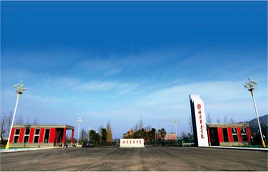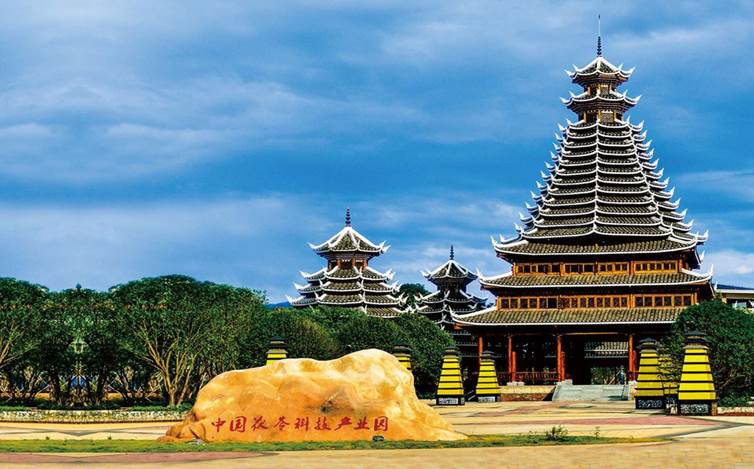

Hunan University of Medicine Zhengqing Group

Poria Cocos Science and Technology Industrial Park
In Huaihua, there are 3,716 species of plants that belong to more than 900 genera of 225 families. The city has 32 plants under special state protection, including five under first class protection and 27 under second class protection. According to the preliminary results of the fourth national census of traditional Chinese medicine, types of medicinal plants in Huaihua account for 64.95% of the province’s total. Among the 245 types of traditional Chinese medicine under key investigation in the census conducted in Hunan Province, Huaihua has 171 types or about 70%.
Within its territory, Xupu is the place of origin and main production area of Lonicerae flos in China; Jingzhou is the largest distribution and trading center of Poria cocos in the state, with an annual distribution volume of more than 80,000 tons (accounting for more than two-thirds of the state’s total) and an annual transaction volume of over RMB2 billion; Xinhuang, hometown of gallnut honey, is becoming the trading and distribution center of sealwort for Hunan, Chongqing, Guizhou and Sichuan, whose annual processing and transaction volume accounts for one-sixth of the state’s total. The city as a whole produces 11,300 tons of Lonicerae flos per annum, with an output value of RMB580 million. Xinhuang’s borneol and Xuefeng Mountain’s rhizoma gastrodiae enjoy good reputation in the state; Poria cocos of Jingzhou, rhizoma gastrodiae and sealwort of Qianyang, honeysuckle of Chenxi, Yao tea of Xupu, borneol of Xinhuang, Houttuynia cordata of the Xuefeng Mountain and Kadsura coccinea of Tongdao are listed as national geographical indication products. Poria cocos, sealwort, Lonicerae flos, lily, radix polygonati officinalis and other geo-authentic herbal medicine are recognized as the nine kinds of Hunan branded herbal medicine. Further, there are nearly 100,000 practitioners in the traditional Chinese medicine and health industry.
(Translated by Yu Jie)
